Mom Brands Daughter Worst Pet Parent Ever Over Strict Rule Of Never Allowing Dog Into Her Bed
Meet our narrator (Original Poster), a 34-year-old single woman living alone who adopted a six-year-old Shih Tzu mix from a shelter last year. The little bundle of joy quickly adjusted to life with her and became the adorable love bug she never knew she needed.
They spent quality time together, especially on her days off. However, life threw a curveball when OP started a new job with three 12-hour shifts per week.
Thankfully, her parents were always willing to dog-sit; they even claimed her pup was a joy to have around. Her dog was quite fond of OP’s dad as well, so everything seemed perfect, right? Well, not quite.
OP had set two simple rules for the dog's care: he sleeps in his own bed, and he only eats dog food. Despite these clear rules, things took a turn for the worse during a family vacation.
At the Airbnb, OP intended for the dog to sleep in his own bed as usual, but in a tired moment of defeat, her mom overruled her. Both her dog and her brother’s dog ended up snuggling with her mom, even ousting her dad to the couch in the process.
The next night, while OP tried to catch some early sleep, her mom barged in and insisted that the dog snuggle in with OP. OP wasn’t backing down so easily this time, and a heated exchange ensued.
The fallout was brutal. OP’s mom began badmouthing her to anyone who would listen about how she was inattentive to her dog.
This was far from the truth, but it still hit a nerve—it wasn’t OP’s fault she worked twelve-hour shifts. Was she really a horrible pet owner for setting boundaries for her dog?
Let’s dig into the details

OP adopted a dog from a shelter. It is well-mannered and loved by all.

Pet Ownership and Emotional Regulation
Dr. Maria Lopez, a psychologist specializing in human-animal interactions, explains that pet ownership often involves deep emotional attachments that can complicate interpersonal relationships. Her research indicates that individuals who form close bonds with their pets may experience heightened emotional responses when those attachments are threatened. In this case, the mother’s criticism reflects her own values about pet ownership, which may not align with her daughter's.
This disconnect can lead to significant emotional distress for both parties.
Due to OP’s tight work schedule, her parents help take care of the dog.
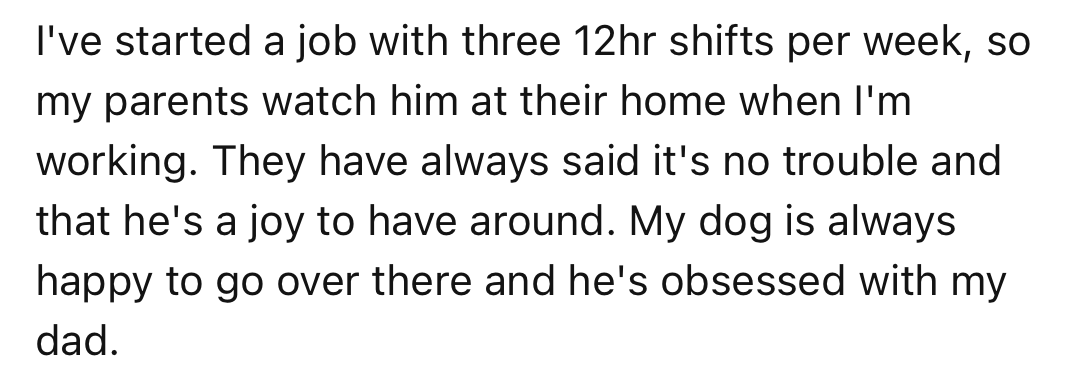
OP set rules for her dog and ensured her parents were aware of them. However, these rules are completely opposite to how OP’s parents care for dogs.
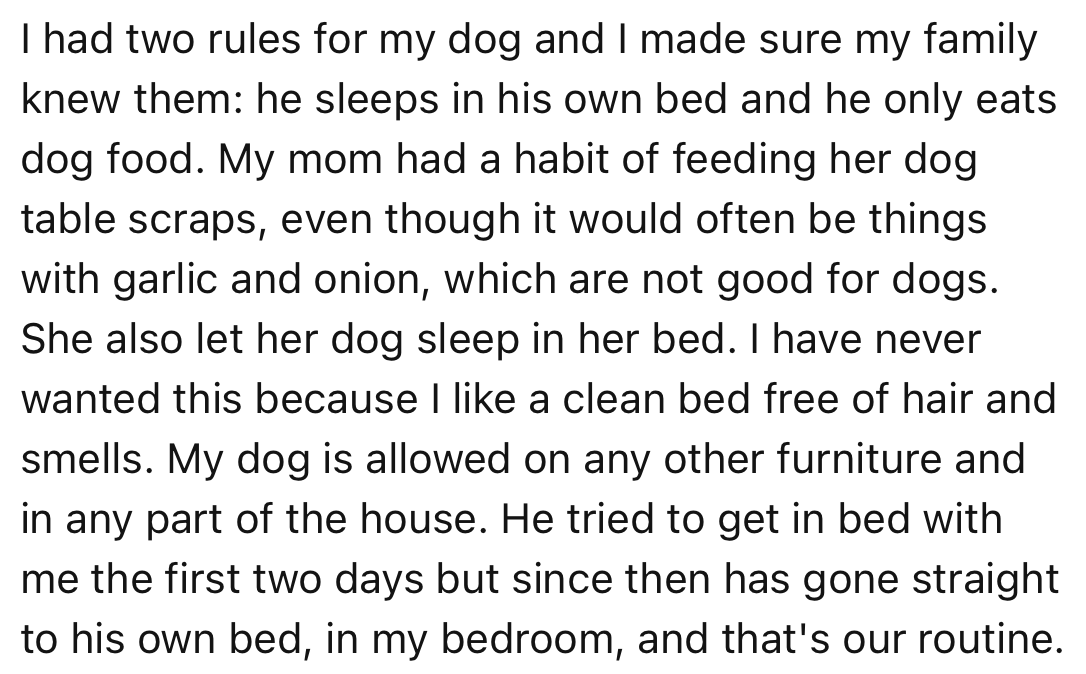
Research in the Journal of Animal Ethics suggests that differing beliefs about pet care can lead to conflicts within families. When individuals hold strong opinions about how pets should be treated, it can create tension, particularly when family members have contrasting views. This highlights the importance of open communication about values and expectations regarding pet care.
During a family vacation, OP’s mother overruled her decision and made the dog sleep in her bed, thereby forcing the dad to sleep on the couch.
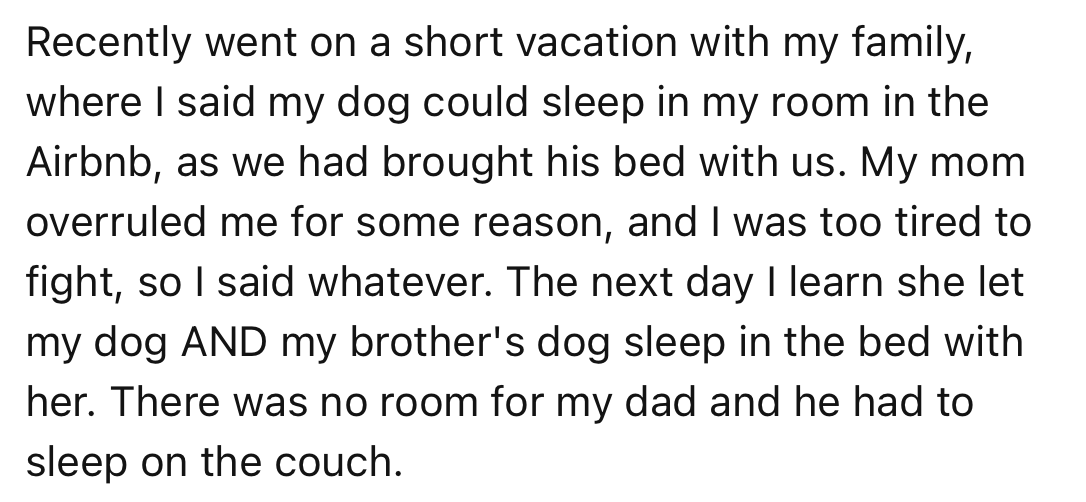
Ever since that altercation, OP’s mom has been speaking to her rudely.

The Role of Boundary Setting
Setting boundaries around pet care is crucial for maintaining healthy relationships. A family therapist notes that establishing clear guidelines about pets' roles in the household can help prevent misunderstandings. This approach aligns with findings in family systems theory, which emphasize the importance of boundaries for healthy family dynamics.
Discussing and negotiating these boundaries can foster a sense of mutual respect and understanding.
OP wonders if she would lose the dog and has to quit her job to provide for the dog.
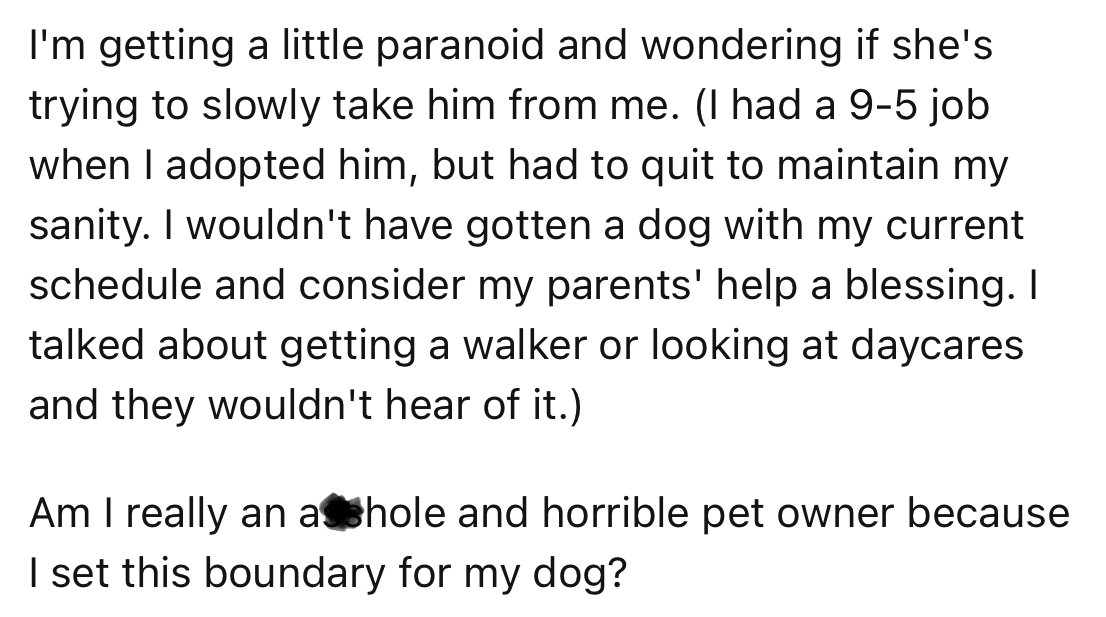
We gathered some interesting comments from the Reddit community:
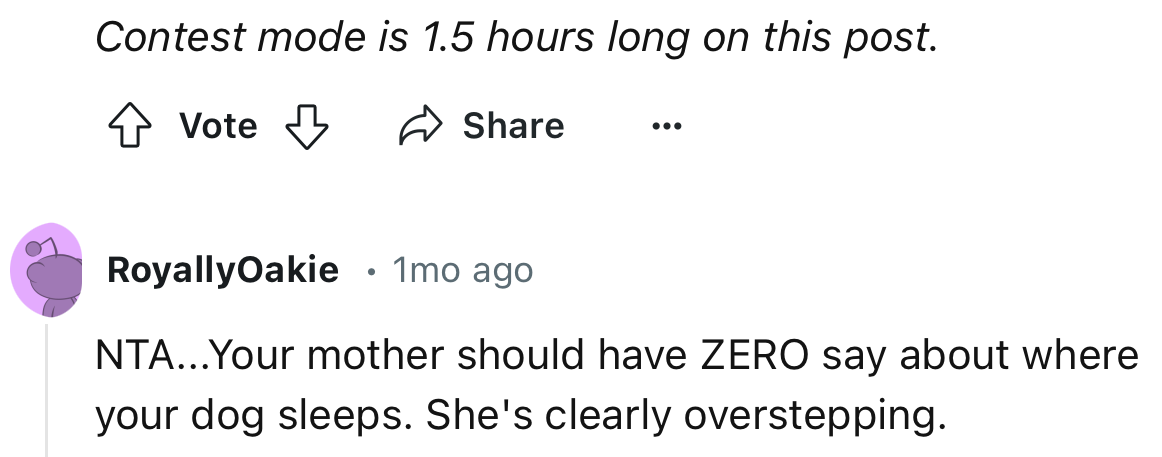
Additionally, emotional regulation strategies can be beneficial in addressing conflicts about pet care. A psychologist specializing in family dynamics suggests that practicing mindfulness can help individuals manage their emotional responses when disagreements arise. This technique allows for more thoughtful communication and reduces the likelihood of heated arguments.
“The boundary you need is not with your dog, but with your mom.”
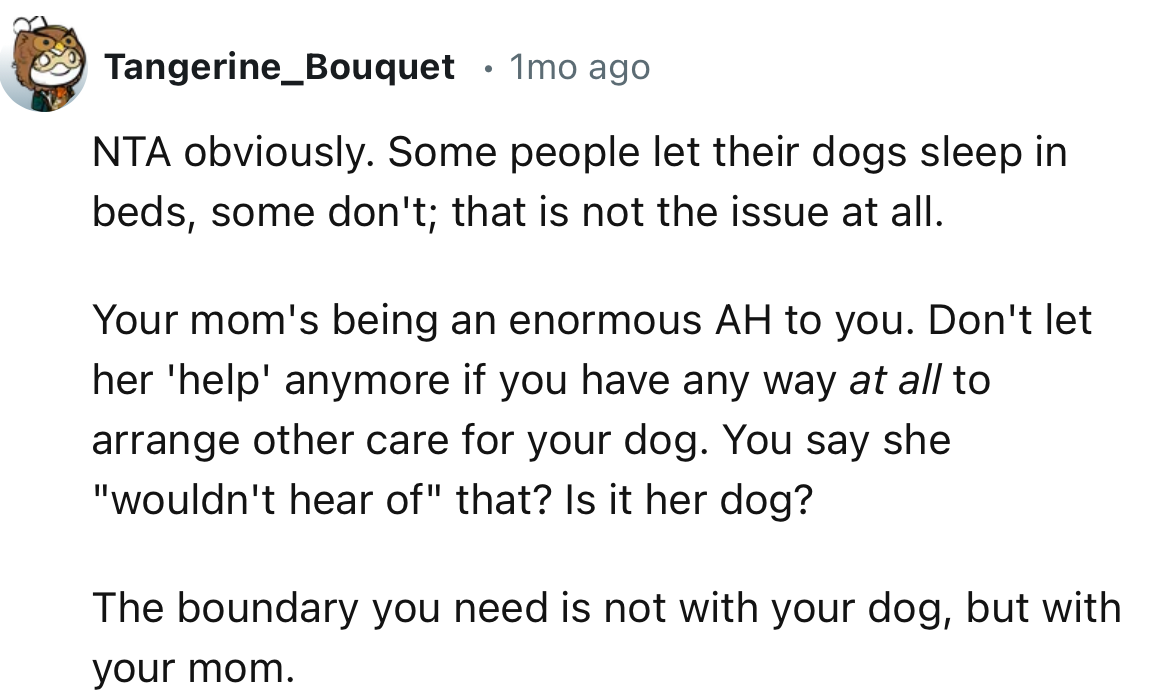
“You keep putting your dog in the care of these people who not only refuse to abide by your rules but who are disrespectful and dismissive to you about these rules.”
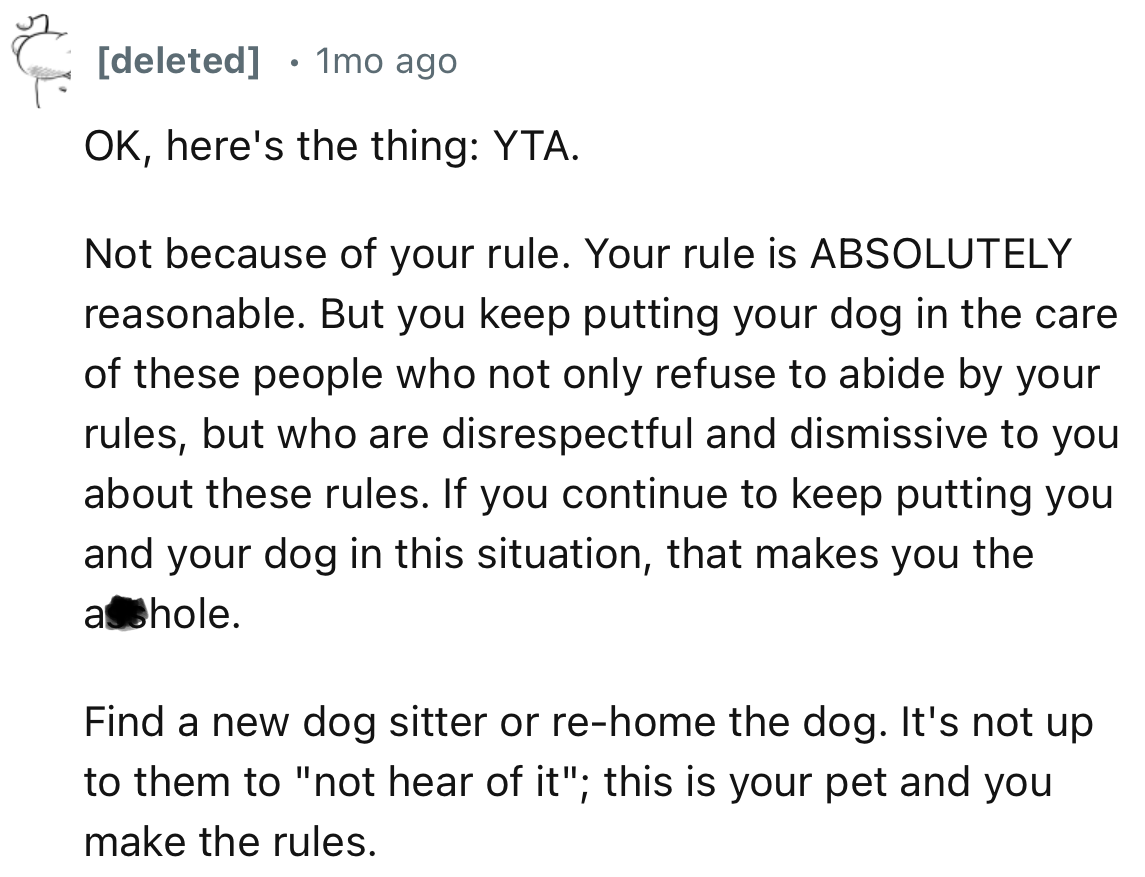
Most Redditors believe OP’s family should respect her choice—it’s her dog after all. Maintaining a routine and ensuring the dog’s well-being with specific rules is still responsible pet ownership.
After all, a happy dog is a well-cared-for dog, even if it means a few tough conversations with family.
What do you think about this story? Let us know in the comments.
“It’s your decision on what you do with your dog as long as it’s safe, healthy, and happy.”
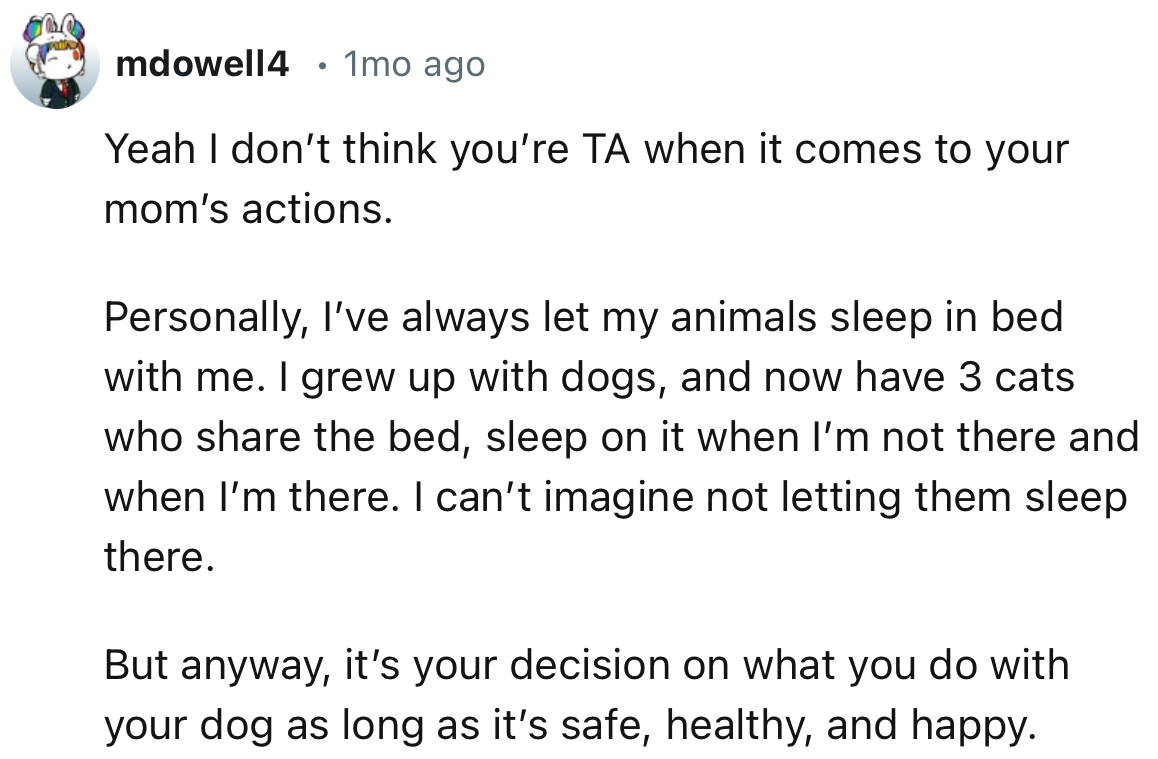
“You don't live with your parents, so what can they even do to stop you from getting a dog sitter/walker/daycare?”
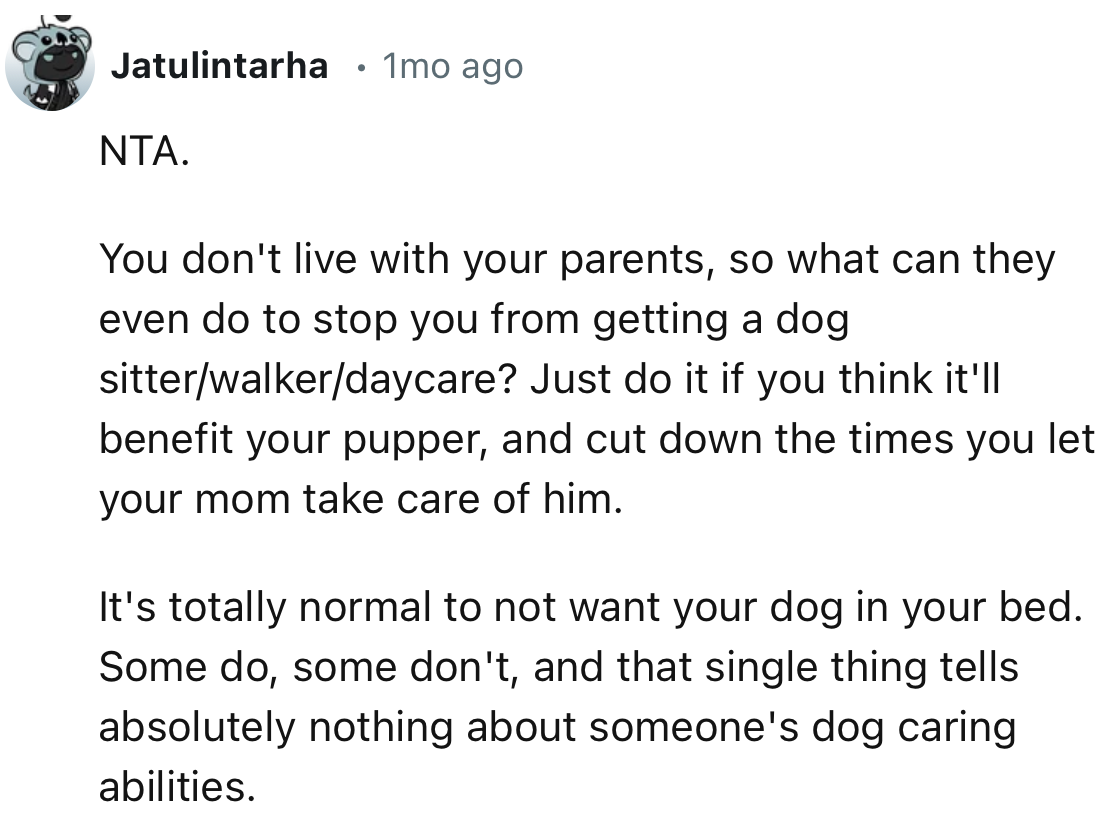
Practical Solutions for Family Conflicts
To improve the situation, families should engage in regular discussions about pet care expectations. Creating a family pet care plan can clarify responsibilities and address concerns related to pet treatment. Involving all family members in this planning process can foster a sense of teamwork and shared accountability.
Moreover, practicing empathy and understanding each other’s perspectives can go a long way in resolving conflicts and strengthening family bonds.
“Your mother is a bad pet owner if she's feeding her dog scraps.”
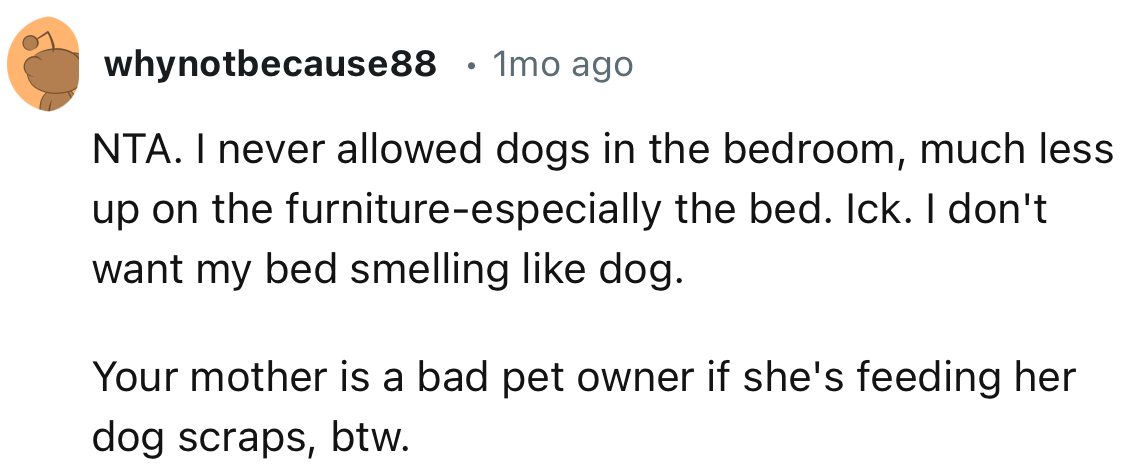
Psychological Analysis
This situation illustrates the complexities of family dynamics surrounding pet ownership. Conflicts often arise from differing values and expectations about animal care. Open discussions about these differences can promote understanding and help families navigate these challenges constructively.
Analysis generated by AI
Analysis & Alternative Approaches
Addressing conflicts around pet ownership requires understanding and communication. Research suggests that establishing clear boundaries and expectations can help mitigate misunderstandings within families. By fostering open dialogue, families can work towards a healthier dynamic that respects everyone's values and feelings.



